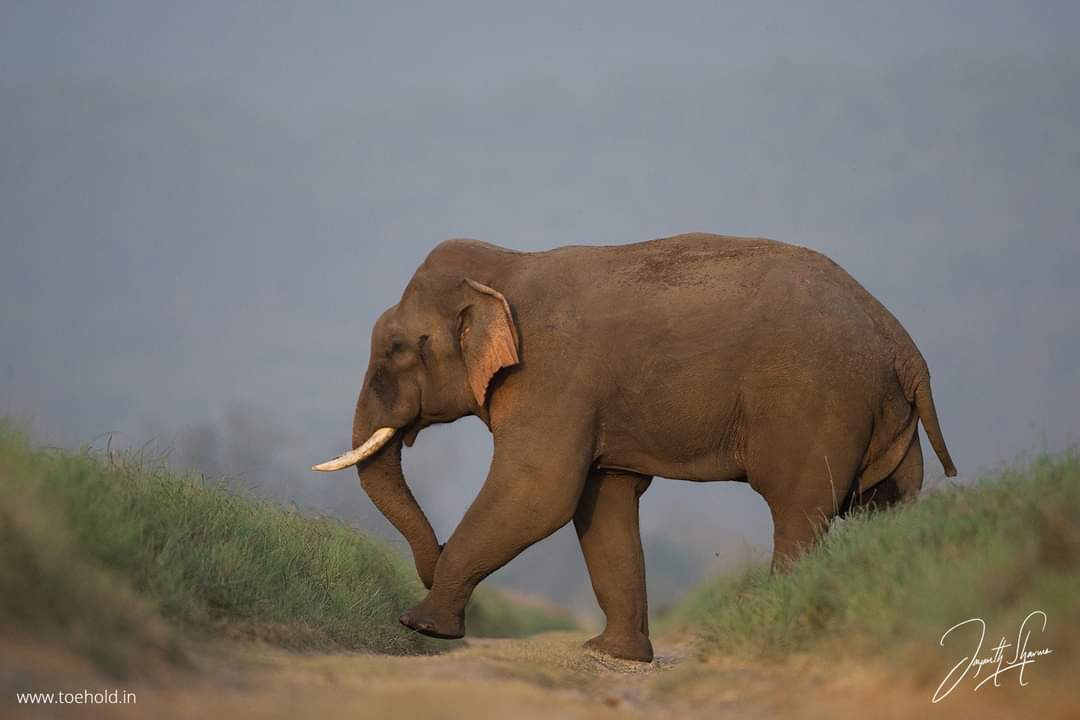Musth: Madness state in male bull Elephants
Dr.Kedar Karki,VS,Nepal
Musth or must is a periodic condition in bull (male) elephants, characterized by highly aggressive behavior and accompanied by a large rise in reproductive hormones. Testosterone levels in an elephant in musth can be as much as 60 times greater than in the same elephant at other times. However, whether this hormonal surge is the sole cause of musth, or merely a contributing factor, is unknown; scientific investigation of musth is problematic because even the most placid elephants become highly violent toward humans and other elephants during musth, requiring segregation and isolation until they recover. Female elephants do not undergo musth.
Cause and effects:
Although it has often been speculated by zoo visitors that musth is linked to rut, it is unlikely there is a biological connection because the female elephant’s estrus cycle is not seasonally-linked, whereas musth most often takes place in winter. Furthermore, bulls in musth have often been known to attack female elephants, regardless of whether or not the females are in heat. There has been speculation that musth is connected to natural periodic reorganization of dominance among males in elephant herds.Often, elephants in musth discharge a thick tar-like secretion called temporin from the temporal ducts on the sides of the head. Temporin contains proteins, lipids (notably cholesterol), phenol and 4-methyl phenol, cresols and sesquiterpenes (notably farnesol and its derivatives). Secretions and urine collected from zoo elephants have been shown to contain elevated levels of various highly odorous ketones and aldehydes. The elephant’s aggression may be partially caused by a reaction to the temporin, which naturally trickles down into the elephant’s mouth. Another contributing factor may be the accompanying swelling of the temporal glands; this presses on the elephant’s eyes and causes acute pain comparable to severe root abscess toothache. Elephants sometimes try to counteract this pain by digging their tusks into the ground. A musth elephant, wild or domesticated, is extremely dangerous to both humans and other elephants. Bull elephants in musth have killed numerous keepers when a normally friendly animal became uncontrollably enraged; in contrast to normal dominance behavior, bulls in musth will even attack and kill members of their own family, including their own calves.
External Manifestation of Musth.:
Musth occurs in male elephants, both Asian (Elephas maximus) and African (Loxodonta africana). In the Asian male elephant, both tuskers and tuskless males (mukhnas) come into musth. The temporal gland secretion starts in the subadult stage but becomes typical musth only after reaching maturity. In the adult male, five stages of musth have been described viz pre-musth, early musth, mid-musth, post-musth and non-musth, the musth activity being typicallyover a 16 week period.
Is Musth Controllable?
Musth in elephants is a normal process. It becomes a problem only in the case of man-elephant interactions. Very often the animal becomes quite docile subsequent to the aberrant behavior almost as if it regrets its misconduct and the mahouts consider this normal and a factor not to be held against the elephant! The mahouts know that animals in musth misbehave but laxity on their part can lead to tragedy.
Musth Facts

https://cincinnatizoo.org/system/assets/uploads/2019/06/Must-Facts.pdf


